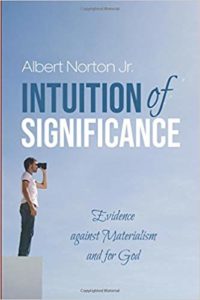There is a big gap between the orthodox Christian understanding of reality, and that of the default materialism of the culture. We tend not to recognize the default perspective as coherent, doctrinal, and dogmatic, in the same way religion is understood to be. Partly this is because of the tendency to describe one’s views by what they are not, rather than what they are. To say “I’m not very religious,” for example, is to say what one isn’t; not what one is. The effect of this tendency is to obscure the metaphysical stance absorbed in place of religion, leaving an illusory neutrality concerning spiritual truth. We tend not to recognize the default secularist outlook as being coherent, doctrinal, and dogmatic, in the same way religion is understood to be.

The average person, “religious” or not, is unlikely to have a reliable grasp on what the default metaphysical view in the culture teaches about ultimate reality. It takes some study and understanding, precisely because it is so typical of us to self-identify in reference to religion. Westerners who reject religion often don’t make an effort to identify what metaphysical assumptions about ultimate reality they have taken up in its place. The false sense of neutrality devolves to materialism because the law, the culture, and our institutions drive us inexorably toward the materialist presumption.
Materialism, like theism, is a doctrine about what constitutes all of reality, “reality” being the widest conceptual net we can cast. Theism provides one answer; materialism another. This book traces the fault line between them so as to follow the evidence where it leads, and where it leads is to the truth of God’s existence and active presence with us. Evidence includes objective physical facts in our environment, and also features of our existence over which we interact with that environment: the fact of being; our incessant yearning; our competing desires both for significance and insignificance; and the subjective motivations we have with respect to beauty, truth, and morality, all indicators of transcendent truth to which our physical surroundings point.
Invariably the critics of Christianity point to reasons it can’t be true, without bothering to explain the evidence before them, if it’s not true. Likewise, proponents of Christianity point to reasons why it must be true, but don’t show how the evidence is inexplicable otherwise. To say it differently, readers of most of the apologetics offerings are put in the position of mistakenly thinking they can accept or reject theism, but not accept or reject the alternative dominant metaphysical position. I might be led to think I can reject Christianity, for example, and grasp only that I’ve rejected something, not that I’ve embraced something else. This is a mistake because the relevant choice is initially not among varieties of Christianity, or of monotheism, or of religions. It is among metaphysical views, and one of those metaphysical views is that there are no metaphysics – that matter in motion is all of reality. That is a proposition that should be proven, just as surely as Christianity, or Islam, or pantheism must be proven. And of course, I contend it can’t be.
In the final chapters of the book I build on the theist argument, saying essentially that if we’ve established there is some sort of supernatural reality – and I think by that point I’ve done it – then it is entirely reasonable to accept the particular manifestation of God to man in the Christ. In fact, to my mind, the truth of the Gospel does not merely follow logically from the nature of God and the arc of history. It had to happen in the way it did, given the nature of God, and of man, and of God’s desired relationship with His creation.
